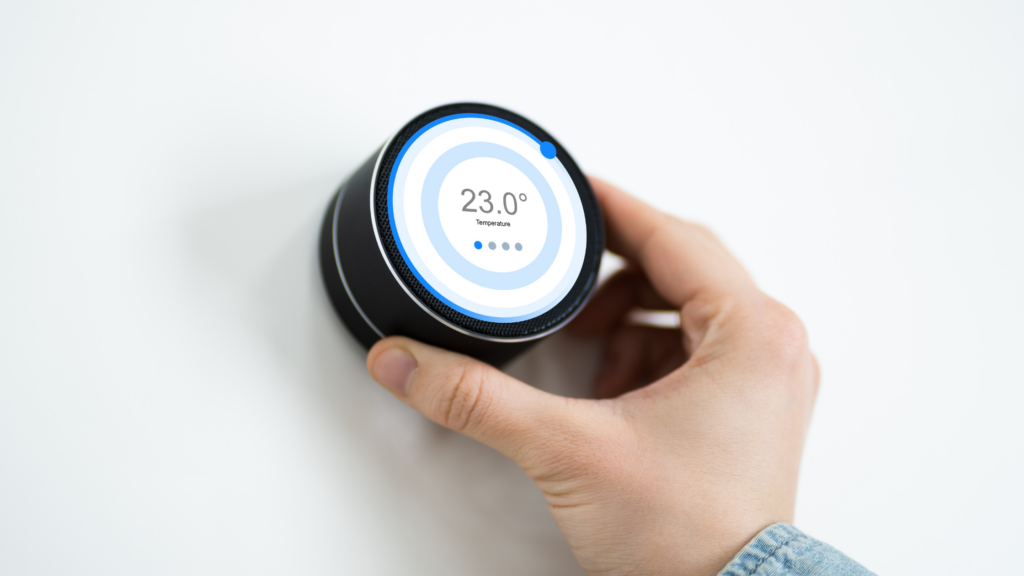Choosing a Smart Home Thermometer: A Guide to Optimising Your Home's Comfort

The Rise of Smart Home Thermometers
In recent years, there has been a significant increase in the adoption of smart home technologies. From voice-activated assistants to automated lighting systems, homeowners are seeking ways to enhance their comfort, convenience, and energy efficiency. One such innovation is the smart home thermometer, which allows you to control and monitor your heating system remotely. This article will guide you through the process of choosing the perfect smart heating thermometer for your home, focusing on the increasingly popular keyword: “smart home thermometer.”
A recent study conducted by Good Housekeeping found that the Google Nest Learning 3rd Gen was the most popular smart home thermometer for most families. It looks good, connects to most voice assistants and is a learning thermometer. It is available in a variety of colours, however it is not as affordable as some other reputable smart home thermometers.
What is a smart home thermometer?
A smart thermostat seamlessly links your boiler to your Wi-Fi, granting you the ability to manage your home’s heating through a smartphone app, whether you’re lounging on the couch or nestled in bed. These systems typically comprise a wireless hub connecting to your boiler and a wireless thermostat controller that can be either wall-mounted or placed on a table, powered by batteries or mains. The finest smart thermostats boast individual intelligent radiator valves, enabling the creation of distinct heating zones and customisation of each room’s heating schedule in terms of timing and duration.
Beyond acting as a remote heating control, smart thermostats outshine traditional wall-mounted push-button designs with their user-friendly programming. Featuring tablet-like touchscreen displays or intuitive interfaces, these thermostats offer flexible weekly, daily, and hourly schedules via smartphone apps, granting you comprehensive authority that might contribute to cost savings. Moreover, certain systems like Nest are endowed with “self-learning” capabilities, adapting to your temperature preferences and optimising schedules for comfort and energy conservation even when you’re away. Some models can harness your phone’s GPS to anticipate your return home or automatically deactivate heating upon departure.
Key Features to Consider when Choosing a Smart Heating Thermometer
When selecting a smart heating thermometer, several key features should be taken into account:
- Connectivity: Look for a thermometer that offers seamless connectivity with your home’s Wi-Fi network. This ensures that you can access and control your heating system remotely through a smartphone app or a compatible voice assistant.
- Compatibility: Consider the compatibility of the smart thermometer with your existing heating system. Some models are designed to work with specific types of heating systems, such as boilers or heat pumps. Ensure that the thermometer you choose is compatible with your heating setup for optimal functionality.
- Temperature Accuracy: Accurate temperature readings are crucial for maintaining a comfortable indoor environment and efficient energy usage. Look for a smart thermometer that offers precise temperature measurements to ensure accurate control and adjustment of your heating system.
- Programming and Scheduling: Smart heating thermometers often come with programmable features that allow you to set schedules for temperature adjustments throughout the day. This feature ensures that your home is comfortably heated when you need it while reducing energy waste when you’re away.
- Energy Monitoring: Some advanced smart thermometers provide energy monitoring capabilities, allowing you to track your heating system’s energy consumption. This information can help you identify opportunities to optimise energy usage and potentially reduce your utility bills.
Installation and Integration: Making the Most of Your Smart Home Thermometer
Once you’ve chosen the ideal smart heating thermometer for your home, it’s essential to ensure a proper installation and integration process:
- Professional Installation: While some smart thermometers can be installed by homeowners themselves, it’s often recommended to hire a professional plumber or heating engineer for installation. They will ensure that the device is correctly connected to your heating system, guaranteeing optimal performance and minimising any potential risks.
- App Integration: After installation, download and install the manufacturer’s app on your smartphone or tablet. Follow the app’s instructions to connect the smart thermometer to your home’s Wi-Fi network. This step allows you to control and monitor your heating system remotely, even when you’re away from home.
- Voice Assistant Integration: If you have a compatible voice assistant, such as Amazon Alexa or Google Assistant, take advantage of the integration feature. By linking your smart heating thermometer to your voice assistant, you can control your heating system using voice commands, adding an extra layer of convenience to your smart home setup.
These articles may also interest you:
Enhance Water Efficiency and Transform Your Home in 2023
Broken Boilers: Common Reasons Why Your Boiler Breaks Down
Local Plumbing Company: Your Trusted Partner for Plumbing Solutions
Upgrade your home with a smart thermometer and Three Counties Plumbing
In conclusion, a smart heating thermometer can significantly enhance your home’s comfort and energy efficiency. By considering factors such as connectivity, compatibility, temperature accuracy, programming features, and energy monitoring capabilities, you can select the perfect smart thermometer for your needs. Remember to prioritise professional installation and take full advantage of app integration and voice assistant compatibility. With the right smart heating thermometer, you can optimise your home’s heating system and enjoy a cosy and energy-efficient living space throughout the year.
Remember to consult with a professional plumber or heating engineer for personalised advice and assistance in choosing and installing a smart heating thermometer tailored to your specific home requirements. Book an appointment with Three Counties Plumbing and Heating to get support with your smart home thermometer installation.
Got an emergency?
We offer a responsive 24/7 Call Out Service